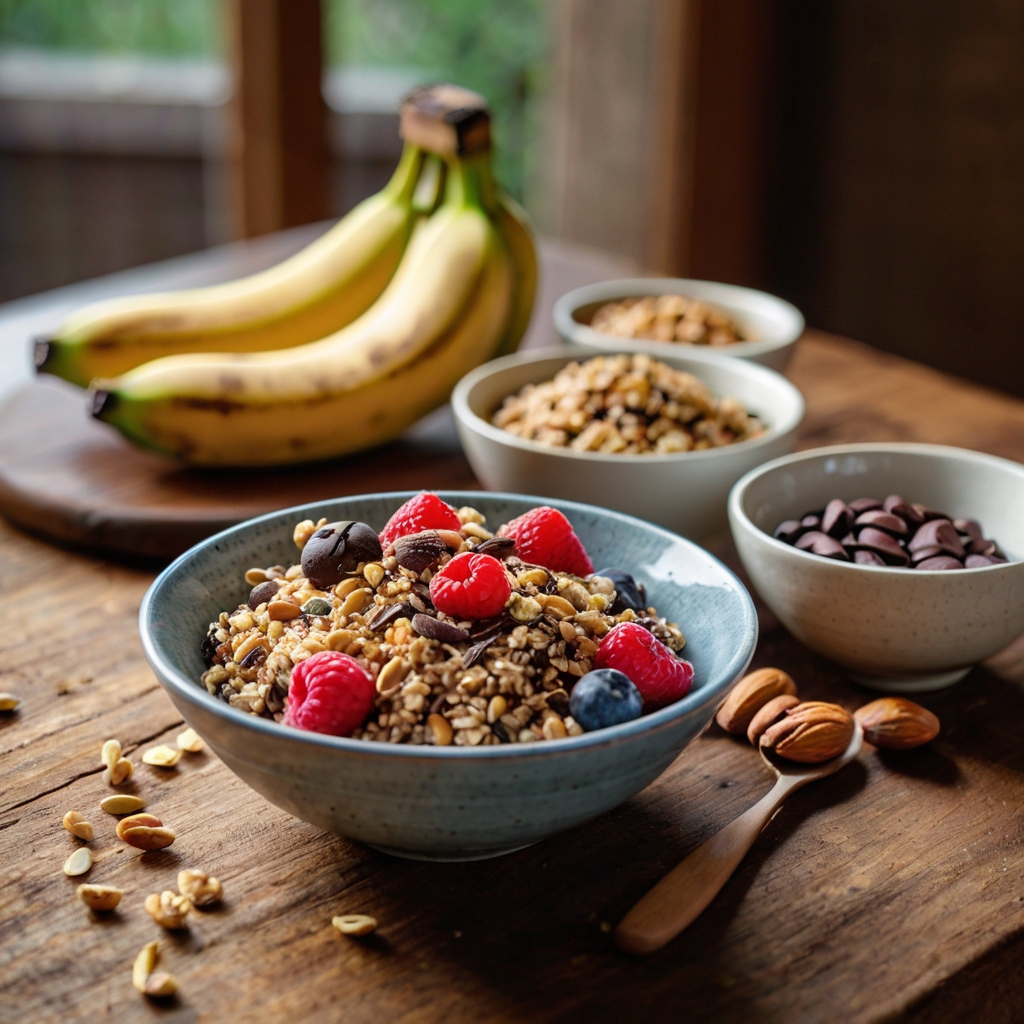When it comes to maintaining energy throughout the day, your diet plays a crucial role. The top 5 foods to boost your energy levels are nutrient-dense, provide sustained fuel for your body, and keep fatigue at bay. Incorporating these foods into your meals can enhance physical performance, improve mental clarity, and promote overall wellness.
If you're feeling sluggish or tired, focusing on energy-boosting foods can make all the difference. Let's explore the best options and how to include them in your daily routine.
Why Choosing the Right Foods Is Key for Energy
Energy levels are not just about caffeine or sugar rushes; they depend on balanced, nutrient-rich foods that provide sustained energy. The top 5 foods to boost your energy levels are rich in complex carbohydrates, healthy fats, and proteins, delivering long-lasting vitality.
When you pair these foods with smart dietary habits like meal planning, you can set yourself up for consistent energy throughout the day. Learn more about how planning your meals can enhance your lifestyle in The Benefits of Meal Planning for Weight Loss—a guide to building healthier eating habits.
The Top 5 Foods to Boost Your Energy Levels
Bananas: Nature’s Energy Bar
Bananas are a powerhouse of natural sugars, fiber, and potassium. These nutrients make them ideal for a quick energy boost, especially before workouts. The carbohydrates in bananas provide immediate fuel, while the potassium helps regulate nerve and muscle function.
How to Incorporate Bananas:
- Add them to smoothies for a nutritious breakfast.
- Pair with peanut butter for a satisfying snack.
- Include slices in your oatmeal or yogurt bowls.
Oatmeal: A Perfect Start to Your Day
Oatmeal is one of the top 5 foods to boost your energy levels because it provides complex carbohydrates that are slowly digested, ensuring a steady release of energy. Rich in fiber, it also helps maintain blood sugar stability.
How to Incorporate Oatmeal:
- Prepare overnight oats for a quick, ready-to-eat meal.
- Top your oats with fresh fruit and nuts for added energy.
- Use oatmeal as a base for healthy baked goods like muffins.
Nuts and Seeds: Energy-Dense Powerhouses
Packed with healthy fats, proteins, and essential minerals, nuts and seeds provide a quick energy boost and are great for on-the-go snacking. Almonds, walnuts, chia seeds, and flaxseeds are some of the best options.
How to Incorporate Nuts and Seeds:
- Sprinkle them over salads or yogurt.
- Blend into smoothies for an added energy kick.
- Make a trail mix with dried fruits for a convenient snack.
Dark Chocolate: A Sweet Energy Enhancer
Dark chocolate, especially those with 70% cocoa or higher, is rich in antioxidants and contains natural caffeine to boost alertness and energy. Its flavonoids improve blood flow, enhancing physical and mental performance.
How to Incorporate Dark Chocolate:
- Enjoy a small piece as a midday pick-me-up.
- Add grated dark chocolate to oatmeal or smoothies.
- Use it in healthy dessert recipes.
Quinoa: A Protein-Rich Grain
Quinoa is a versatile grain loaded with protein, iron, and magnesium—nutrients that contribute to energy production at the cellular level. Its low glycemic index ensures steady blood sugar levels.
How to Incorporate Quinoa:
- Use as a base for grain bowls with veggies and lean protein.
- Substitute quinoa for rice in your meals.
- Add to soups and stews for extra nutrition.
Tips to Maximize Energy from Foods
1. Stay Hydrated Water is essential for energy production and nutrient absorption. Pair these energy-boosting foods with proper hydration to maximize their benefits.
2. Avoid Refined Sugars While tempting, sugary snacks can lead to energy crashes. Stick to natural sugars found in fruits and whole foods.
3. Plan Your Meals Incorporating the top 5 foods to boost your energy levels into a structured meal plan can help ensure consistency. Learn how The Benefits of Meal Planning for Weight Loss can simplify this process and support your overall health goals.
FAQs
Which foods provide quick energy? Bananas, dark chocolate, and nuts are excellent for immediate energy due to their natural sugars, fats, and proteins.
Can these foods replace caffeine? While these foods provide sustained energy, they don't deliver the same immediate jolt as caffeine. However, they help avoid energy crashes associated with coffee.
How often should I eat energy-boosting foods? Include at least one energy-boosting food in every meal or snack to maintain stable energy levels throughout the day.
Are there any foods to avoid for better energy? Refined sugars, processed snacks, and high-fat fried foods can cause energy dips and should be limited.
How does meal planning help with energy? Meal planning ensures balanced meals with energy-boosting foods, preventing fatigue from nutrient imbalances or skipped meals.
Conclusion: Boosting Energy Through Nutrition
The top 5 foods to boost your energy levels—bananas, oatmeal, nuts, dark chocolate, and quinoa—are versatile, delicious, and incredibly effective in maintaining sustained energy throughout the day. Incorporate these powerhouse foods into your meals, and pair them with consistent meal planning and hydration for the best results. Ready to take control of your diet? Start by exploring The Benefits of Meal Planning for Weight Loss to learn how to optimize your nutrition.



